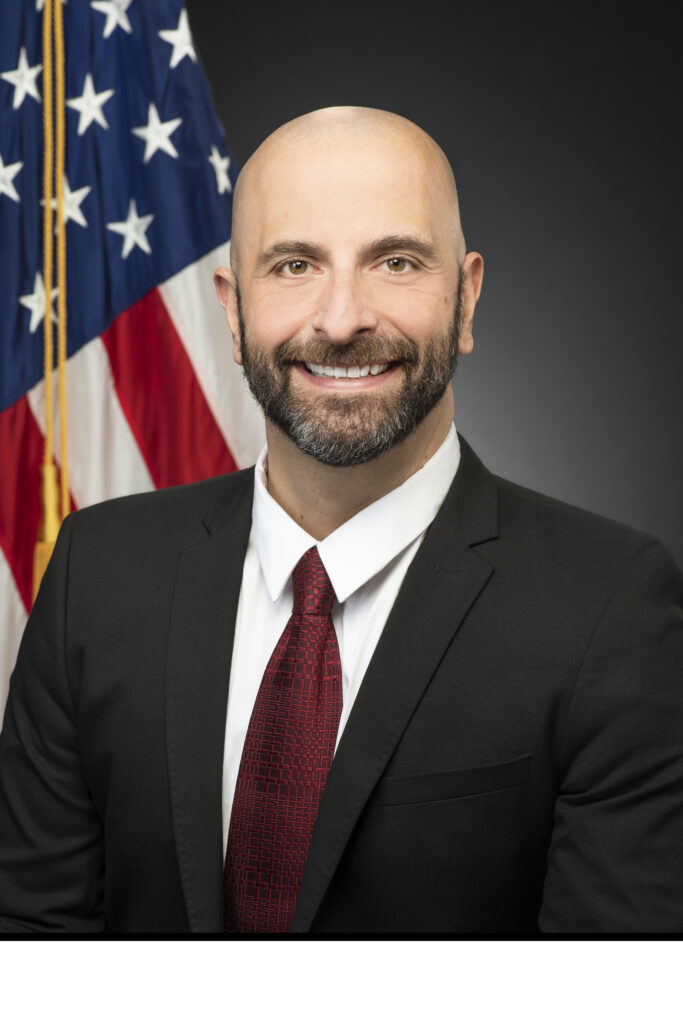Demetre Daskalakis, MD, MPH, is tackling HIV prevention nationally
By Alicia Green

Demetre Daskalakis, MD, MPH, remembers the day he felt called to become an HIV doctor: April 23, 1995. He was a college student working on a display for the AIDS Memorial Quilt when he witnessed people paying homage to their lost loved ones.
“I remember saying, ‘My job is to not let anybody get sick or die from HIV/AIDS,’” says Daskalakis, the director of the Division of HIV/AIDS Prevention at the Centers for Disease Control and Prevention (CDC).
But Daskalakis, 47, is not your average doctor — he’s also a gay activist with strong ties to the LGBTQ+ community.
“When I realized that the single largest health threat to my community was HIV, the intersection became really clear for me,” Daskalakis explains. “It’s important and possible to be both a physician and an activist and to work in government and have an activist heart.”
For eight years, he was an attending physician at the New York University School of Medicine before serving as the medical director of three HIV clinics at Mount Sinai Hospital.
In 2014, Daskalakis joined the New York City health department as assistant commissioner of HIV/AIDS prevention and control, his first job in public health.
Daskalakis was promoted to deputy commissioner of disease control in 2017. During his three years in that role, he led NYC’s “Ending the Epidemic” initiative and helped reduce HIV diagnoses to a historic low.
Having effectively reduced HIV transmissions and deaths in America’s largest city, Daskalakis is now tackling HIV at the national level. Since December 2020, Daskalakis has led HIV prevention efforts at the CDC. He aims to apply what he learned in New York City to the epidemic across the country.
Health equity is top of mind for Daskalakis. He plans to identify ways to improve HIV outcomes for all by interrupting racism, sexism and other isms. Additionally, as the senior COVID-19 data and engagement equity lead at the CDC, he has been tasked with ensuring a fair and equal distribution of COVID-19 vaccines.
“We also want to really identify ways that we can cross-link HIV with STDs [sexually transmitted diseases] and viral hepatitis as well as mental health and drug user health to be able to achieve a more global approach to addressing syndemics,” he explains.
Daskalakis also hopes to eliminate the divide between people living with HIV and those who could benefit from prevention strategies through what he calls “status-neutral care” — giving patients the same initial treatment and care regardless of HIV status.
“The status-neutral framework is addressing stigma at its root,” he says. “Let’s not worry about building a service based on a test result. Let’s worry about who the people are and what we can do to make them comfortable getting services and care.”
Despite being called a “radical doctor” (for doing outreach at sex clubs, for example), Daskalakis insists that what makes him stand out in the fight against HIV is his love for the communities affected by the virus.
“All I’ve ever done is listen and learn,” Daskalakis says. “When you listen to the community and the science and figure out how to marry them, really good things happen.”
Alicia Green is an assistant editor for POZ. This column is a project of TheBody, Plus, Positively Aware, POZ, and Q Syndicate, the LGBTQ+ wire service. Visit their websites – http://thebody.com, http://hivplusmag.com, http://positivelyaware.com, and http://poz.com – for the latest updates on HIV/AIDS.
